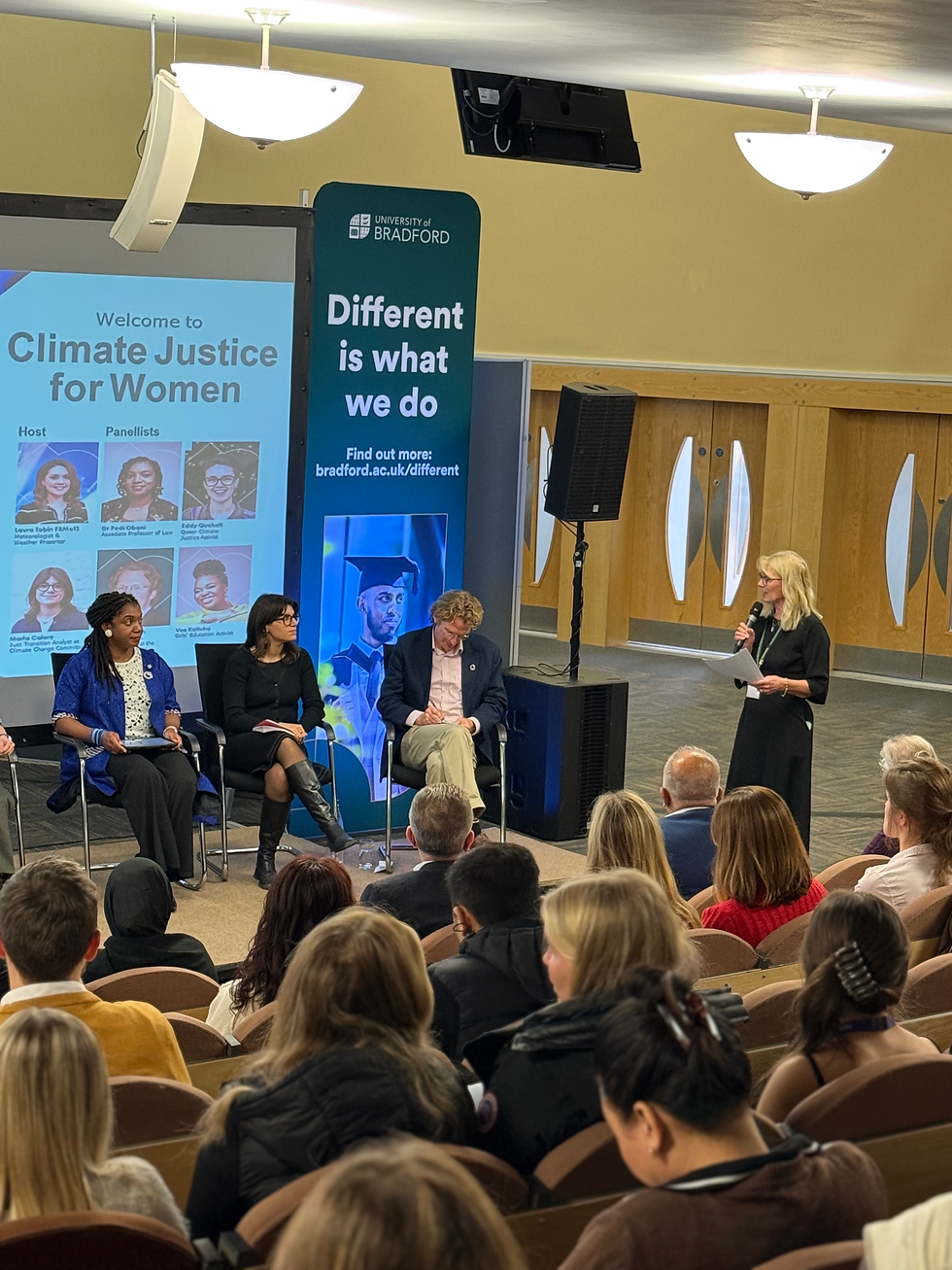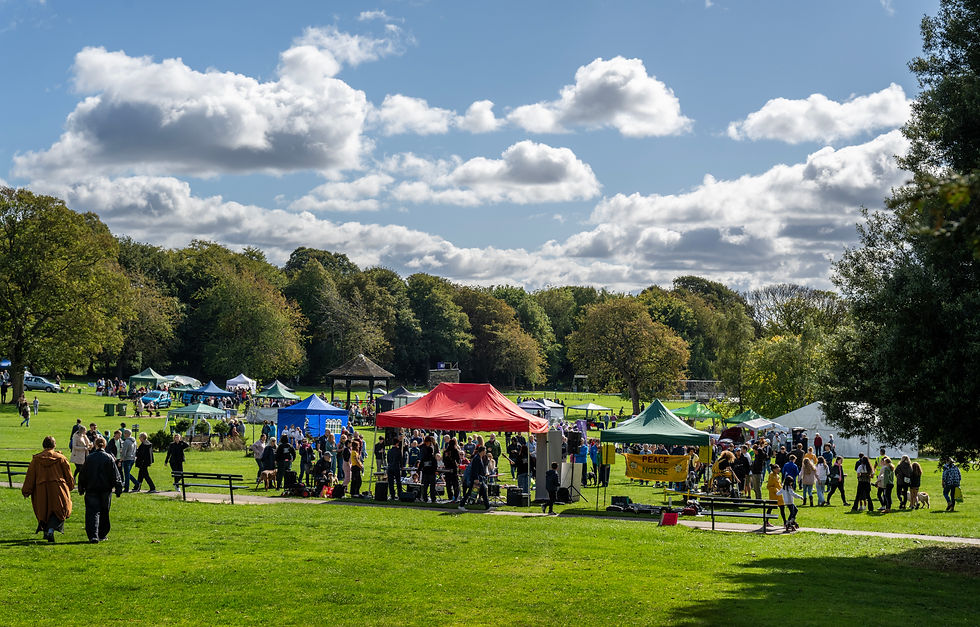International coverage of CAL's lessons from Leeds
- none
- Aug 5, 2025
- 4 min read
Updated: Sep 1, 2025

Climate Action Leeds was held up for a global audience after being chosen as the cover story on a publication put together by experts.
Thanks to work from CAL's movement building team - namely Paul Chatterton and Stella Darby, who both teach at the University of Leeds - the partnership was featured on the front of Sustainability, an open-access journal about the "environmental, cultural, economic, and social sustainability of human beings".
For their article, Paul and Stella wrote about the insights they had drawn from in-depth conversations with a range of Leeds residents, including entrepreneurs, local councillors, and youth activists.
Those conversations (which they acknowledge have limitations) plus wider observations from 4+ years of CAL work, allowed Paul and Stella to identify key themes and make recommendations for work in Leeds and much further beyond.

These include where the term "climate emergency" came from and whether it is still fit for purpose; how climate action needs to be part of a wider shift towards solutions which benefit people and planet; and how racial and historical factors are key to framing and understanding climate action conversations.
As this suggests though, Paul and Stella's article is rich in detail and thought-provoking ideas. You can read it here or find the full piece below as a PDF - please share widely!

Paul and Stella have given a summary of their findings here.
Beyond Emergency Action: How Leeds Is Rethinking Local Climate Action
In recent years, the phrase “climate emergency” has become a rallying cry for action. Since Greta Thunberg first launched her school strike in 2018, it’s appeared in headlines, policy documents, and protest signs around the world. But what does it really mean to act like it’s an emergency? And how can communities respond in ways that are not just urgent, but also inclusive, thoughtful, and transformative?
Our recent study based on a group of stakeholders in Leeds, UK, offers some powerful insights. Drawing on the work of Climate Action Leeds, our research explores how people are navigating the complexities of climate action in their own neighbourhoods. What we found was that people wanted to create a hopeful and practical vision for how cities can move beyond ideas of emergency, panic and urgency and towards lasting change.
Rethinking the Climate Emergency
One of the key findings is that the term “climate emergency” is both helpful and limiting. On one hand, it captures the seriousness of the situation and can motivate action. On the other, it can create fear, confusion, and even burnout. In Leeds, many local actors are reframing the emergency beyond just issues of climate change and link it to a broader crisis that includes social inequality, historical injustice, and the loss of our natural world.
This shift allows climate action to connect more deeply with everyday concerns—like housing, food, transport, and community wellbeing. It also opens the door to more inclusive conversations, especially with communities who have often been excluded from mainstream environmental movements.
New Leadership for a New Era
Another important theme is the emergence of new forms of local leadership. Rather than relying solely on government or experts, Climate Action Leeds brings together a “patchwork” of actors from across sectors—academia, business, civil society, and local government. These collaborations are creating new spaces for planning and action, such as the Imagine Leeds hub, where people can come together to share ideas and build solutions.
This kind of leadership is less about hierarchy and more about networks, relationships, and shared purpose. It’s about empowering people to take action in their own communities, while also connecting with broader movements for change.
Values That Sustain Us
Perhaps most striking is the emphasis on values. In Leeds, climate action is increasingly guided by principles like care, fairness, and justice. This includes caring for ourselves and each other, recognizing the emotional toll of climate work, and creating space for rest and reflection. It also means standing in solidarity with those most affected by climate change—both locally and globally.
Climate Action Leeds has developed a set of core values to guide its work, and has made a conscious effort to address the lack of diversity in the climate movement. This includes working with communities of colour, amplifying marginalized voices, and promoting leadership from underrepresented groups, especially the city’s young people.
A Blueprint for Change
The Leeds experience of climate action offers a powerful blueprint for other cities. It shows that climate action doesn’t have to be driven by fear or urgency alone. Instead, it can be rooted in care, collaboration, and a deep understanding of the challenges we face. It can be about building better lives—not just avoiding disaster or taking emergency action.
As we look to the future, the lessons from Leeds remind us that the climate emergency is not just a moment of crisis—it’s also an opportunity. An opportunity to rethink how we live, how we lead, and how we care for each other and the planet.




Comments